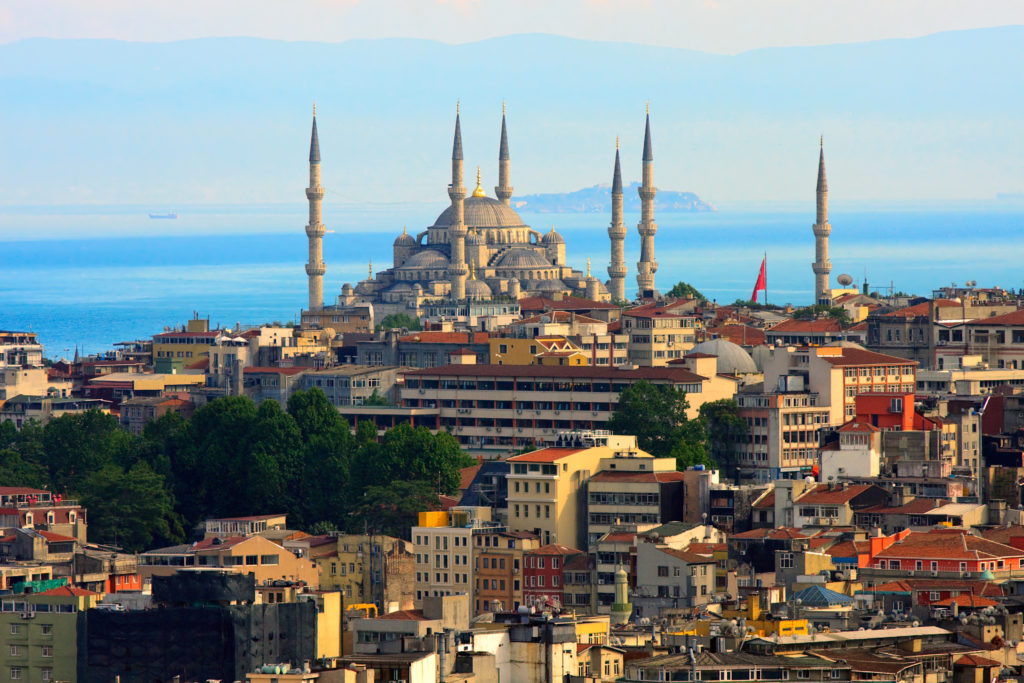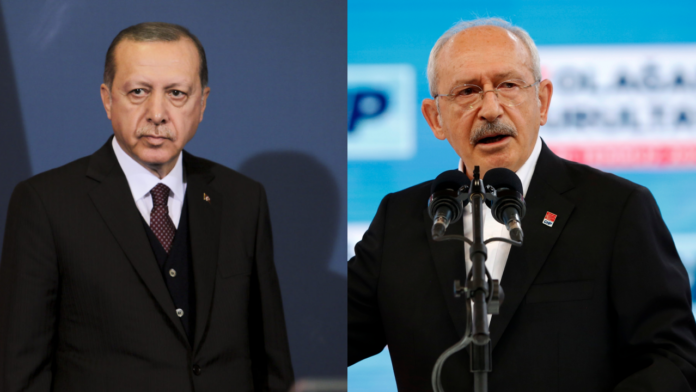With over 95% of the votes counted, the Turkish presidential election is heading towards a run-off between the incumbent Recep Tayyip Erdogan and his secular, pro-West rival Kemal Kilicdaroglu.
Official statistics show that Erdogan won 49.4% of the votes while Kilicdaroglu won 44.9% with a huge turnout of 88%.
Erdogan triumphed in central and southern areas of Turkey which have a more religious, conservative voter base, while Kilicdaroglu prevailed in many of the more liberal coastal and Kurdish areas, as well as bigger cities.
But given that neither reached the 50% threshold, the race will now conclude on May 28 in a head-to-head run-off.
The surprise of the election was the nationalist candidate Sinan Organ who won 5.3% of the vote and could prove the kingmaker in a run-off between the top two candidates.
It is not yet certain where Organ’s votes may go.
Erdogan has yet to comment on the result but seemingly took aim at the opposition who claimed they were leading the race while the count was ongoing and results showed that they were behind.
Subscribe to our newsletter and stay updated on the latest news and updates from around the Muslim world!
He tweeted: “The fact that the 14 May elections took place in the form of a great feast of democracy with peace and quiet is an expression of the democratic maturity of our Turkey.
“While the election was held in such a positive and democratic atmosphere and the vote counting is still going on, trying to announce results hastily means usurpation of the national will. We are pleased that the favour of our nation is reflected in the ongoing vote count.
“I ask all of my litigants and colleagues to stay at the ballot boxes, no matter what, until the results are officially finalised. I congratulate all my citizens who voted in the name of democracy and took part in the election work, and I express my gratitude to each and every one of them.”
Meanwhile, Kilicdaroglu said that the Erdogan camp kept objecting to the results from certain ballot boxes to block the system.
“There are ballot boxes that have been objected to six times, 11 times,” he said, adding: “You are blocking the will of Turkey.”
Kilicdaroglu said: “You cannot prevent what will happen through objections. We will not allow a fait accompli.”

He urged Erdogan to stop “perception management” and the national election board to act responsibly.
Meanwhile, Turks were also voting for a new parliament in a contest between the People’s Alliance comprising Erdogan’s AKP party and his nationalist allies, and Kilicdaroglu’s Nation Alliance formed of six opposition parties.
With around 95% of votes counted, Erdogan’s alliance looked set for a majority with 323 seats in the 600-seat parliament after results turned out far better for the ruling bloc than projected in most polls.
The presidential results seem to reflect the polarisation in Turkish society between those who are Islamically-orientated and secularists.
The Islamic Ottoman Empire ruled over much of the Middle East and Europe for centuries but when the empire collapsed in the early 20th century, modern Turkey’s founder, Mustafa Kemal Atatürk, sought to create a new, secular nation-state.
Atatürk instituted a series of secular reforms that aimed to “modernise” and westernise Turkey and break with its Ottoman past. These reforms included the adoption of a secular legal code, the replacement of Arabic script with the Latin alphabet, and the imposition of strict dress codes that discouraged religious attire.
But despite Atatürk’s efforts Turkey remained a predominantly Muslim country, and Islamist movements emerged in the 1960s and 1970s in response to the failures of secularism.
These movements gained political power in the 1990s and early 2000s under the leadership of Recep Tayyip Erdogan and his Justice and Development Party (AKP).





















